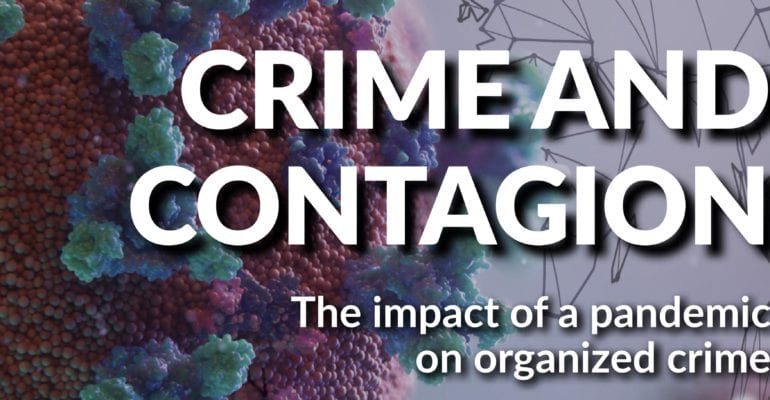A report by Linda Witong SI Special Advisor to Advocacy.
“According to a recent report entitled ‘Crime and Contagion: The Impact of a Pandemic on Organized Crime’ the COVID-19 pandemic is not only transforming the lives of communities around the world, having profound impacts on society and the economy, it is also influencing and shaping organized crime and illicit markets as a result of the restriction of public movement and the sealing of borders. In some cases this has had an immediate impact on some criminal activities, which have slowed or stopped. However, equally, reports are already emerging of criminal groups who have exploited confusion and uncertainty to take advantage of new demand for illicit goods and services.
According to the report, social distancing measures and lockdowns have had an impact on violent street crime including a decrease in homicides and robberies as well as auto thefts. Closed borders or the freedom of movement is also making it more difficult for organized crime groups to export or import counterfeit and illicit trade goods, drugs or engage in cross-border trafficking or smuggling. The chaos brought by the pandemic has also made the situations of vulnerable young people, migrants or asylum-seekers at risk of being trafficked even more precarious.
In addition, according to the above report, keeping victims of sexual trafficking isolated, both physically and emotionally will be made significantly easier in lock-down situations, where victims may be unable to escape abusive circumstances, and behind closed doors may be exposed to more extreme forms of abuse. Victims of domestic servitude who are shut in with their employers, unable to access police or social services, may also be further victimized by physical or sexual abuse. Compounding the problem, identifying victims of human trafficking for sexual or forced labour often relies on identification and reporting by the public, which is to become significantly less or fall away completely as social distancing comes into effect.
School closures may also lead to an increase in human-trafficking cases as, in the absence of subsidized school meals and in view of the pandemic’s economic burden on families, children may be forced into child labour, early marriage or be used for child sexual exploitation online, including for live sex acts.
According to the above report, chronic underfunding due to fraud, corruption and eroded capacity will also make the struggles of the healthcare sector even more significant, including its ability to respond effectively to the current crisis. With the pandemic, rising demand and limited resources create the perfect conditions for corruption to worsen. Counterfeit, substandard and illegally diverted pharmaceuticals are already among the world’s most pressing illegal trade problems. A lucrative criminal industry – estimated to be worth as much as US$431 billion annually – it is also a massive public-health threat, as it targets disproportionately the most vulnerable: those who are sick and poor. Selling the vulnerable substandard and ineffective drugs can worsen the condition of sick individuals, hinder accurate diagnoses, accelerate the spread of communicable diseases, increase drug resistance, reduce the confidence that people have in their health institutions, and ultimately kill people. Bribes may also be paid for preferential medical treatment or to flout quarantine restrictions
Cyber scams, fraud, disinformation and other cyber-enabled crimes will also become a growth industry as a result of this pandemic. A series of coronavirus-related phishing scams have already emerged including cybercriminals who impersonate trusted sources of information, such as the World Health Organization, to spread malware or harvest personal information. INTERPOL has also issued a warning against frauds whereby people are tricked into buying non-existent medical supplies, making payments intended for medical care into accounts controlled by criminals. It is estimated that millions of dollars have already been lost by victims of such scams. New markets linked to the pandemic, are also being created such as the advertising of wildlife products and other cures.
In addition, on line avenues will increase exposure to those on ‘lock-down’ to illicitly sourced, counterfeit and illicitly traded goods, online sex industries and sites offering live child sexual exploitation, romance scams, lotteries and fraudulent businesses transactions. Children who home school, play games online and use social media during school closures also run the risk of being targeted and groomed by sexual predators.
Police forces may also be forced to respond only to major incidents owing to the loss of infected and quarantined staff. In view of the possibility of social disorder, states may resort to positioning themselves as ‘partners’ with organized crime in order to supply services and to support the state in maintaining order.
Meanwhile the poor, uninsured, drug users, sex workers or those who are incarcerated stand to become even more marginalized, as health resources, social welfare and policy responses are targeted towards the immediate coronavirus threat.”


Linda, you point out some interesting facts about crime during the lockdown due to COVID-19. This is why it is so important for us to continue speaking out for women an girls.